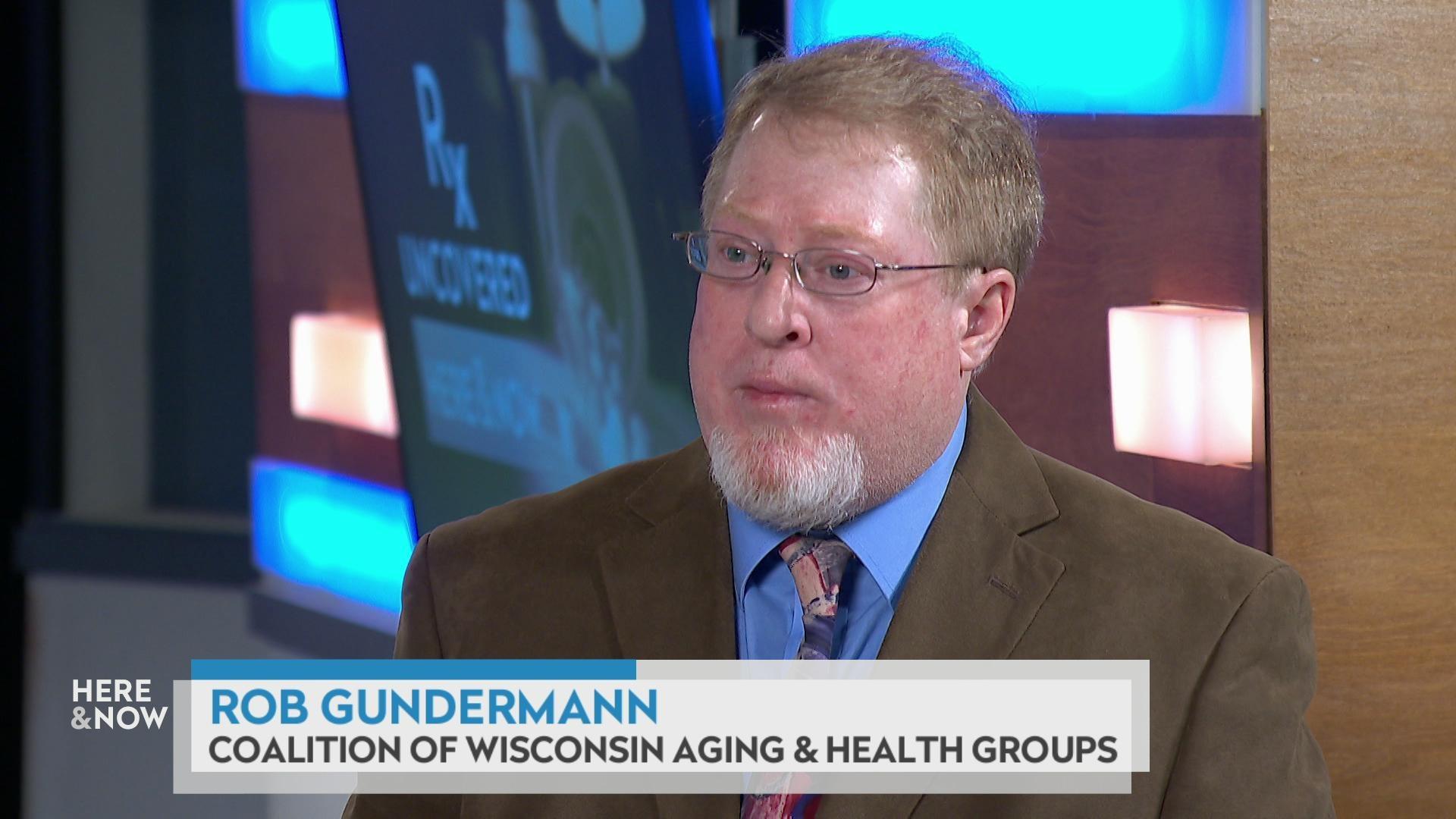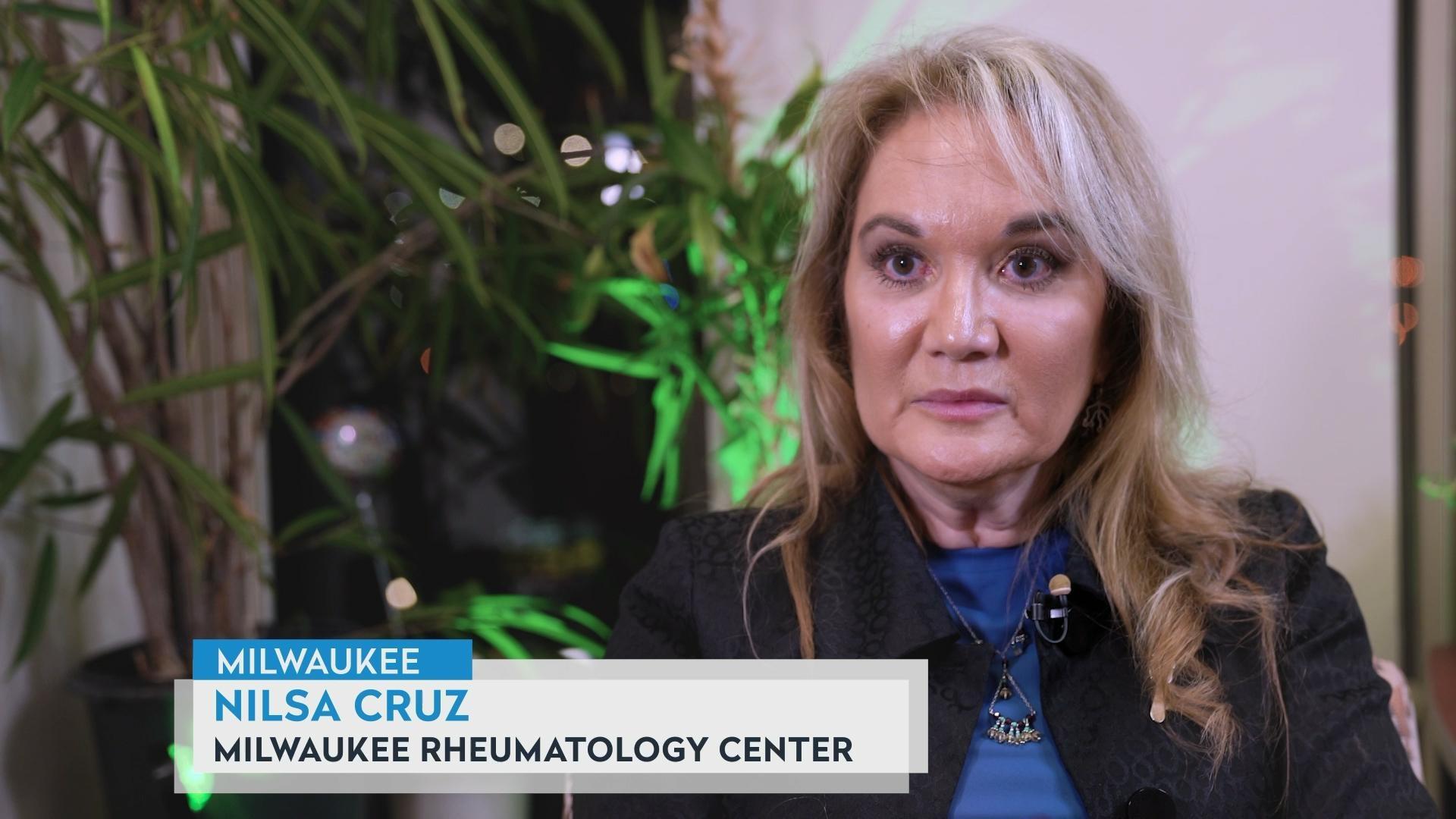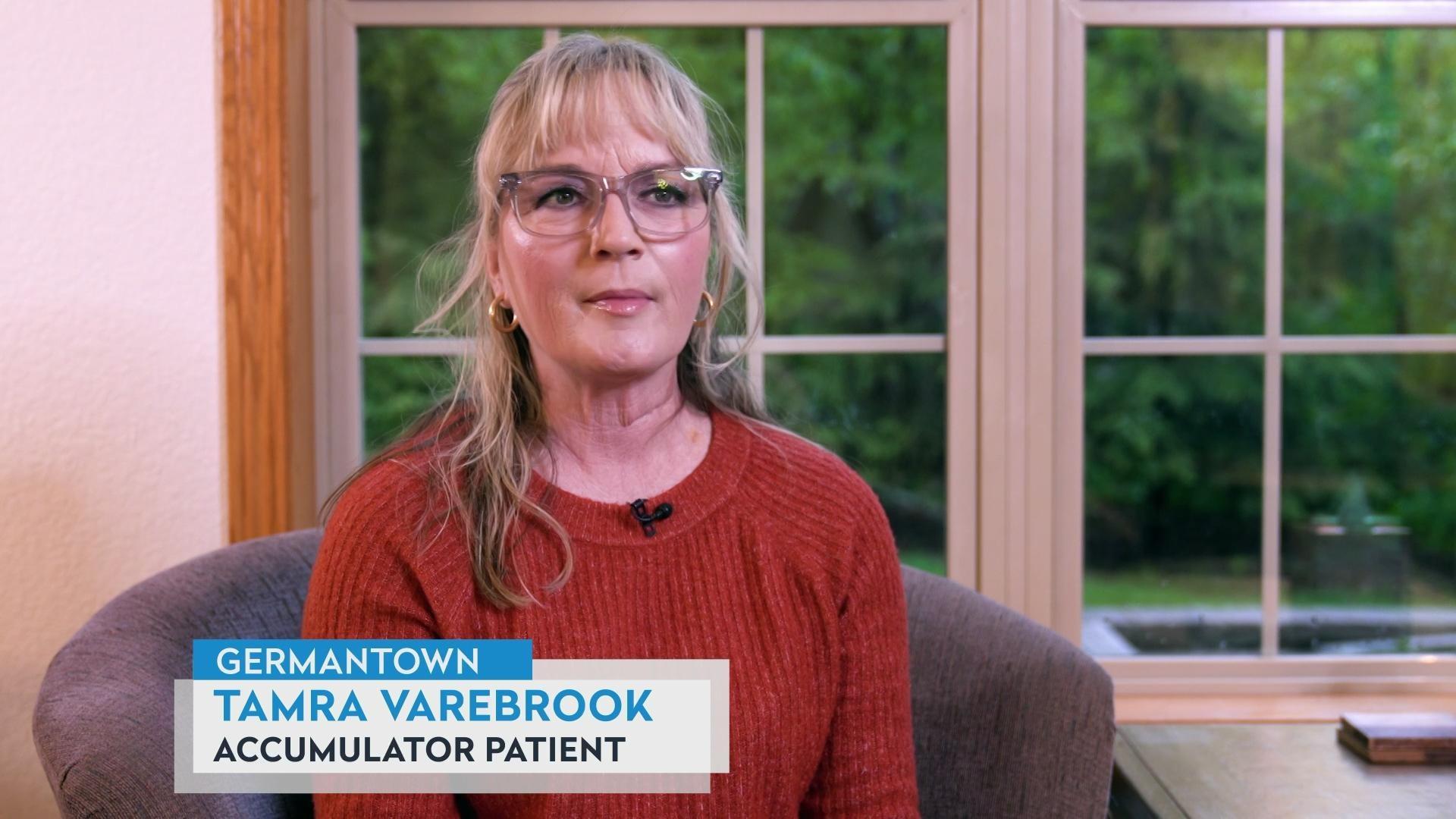Why complex health benefits are a focus of patient advocates
Rx Uncovered: Medications for chronic illnesses can be expensive and require special approval — patient advocates work to navigate complicated and opaque health plans to find opportunity and options.
By Marisa Wojcik | Here & Now
August 8, 2025
Patient advocates work to navigate complex health plans to find opportunity and options.
For decades, the cost of prescription medications has been ever increasing. At the same time, health coverage of these medications has been decreasing, forcing patients to make harder decisions about their health. Rx Uncovered is a series from “Here & Now” producer Marisa Wojcik that dives into the complex systems driving these trends and the stories of patients facing life or death choices. The fifth story is about advocates who help patients understand their health plans and challenge claim denials.
“How far are they away from bankruptcy?” Nilsa Cruz asked. “They are as far away as a chronic diagnosis from bankruptcy.”
“They pretty much billed me $83,000 per infusion,” Janelle Zeihen said.
The right medication can be expensive but critical for chronic illness patients — advocates like Cruz know this all too well.
“Why I became a patient advocate was actually baptism by fire,” she said.
When Cruz started as administrator for the Milwaukee Rheumatology Center more than 20 years ago, she also became the clinic’s de facto patient advocate.
“When you are managing a practice of one solo rheumatologist,” she explained, “and patients coming back or calling back because of their medication is not covered — or perhaps they cannot afford the out of pocket expense after going through a very tedious process of a prior authorization, only to come and find out that is unaffordable.”
Cruz explained further.
“Delays and denials and some patients suffering, too — so patients really don’t understand what’s going on with their benefits,” she said.
Today, Cruz is known, and even sought out, for her ability to help patients navigate complex health benefits.
“I come to this clinic because of their patient advocate,” said Zeihen, who came to Cruz when her last clinic didn’t know how to help her navigate her health plan benefits.
Zeihen came to this rheumatology clinic for her Crohn’s, a type of inflammatory bowel disease.
“It starts with, like, somebody sucker punching me right up into my chest and then, and that’s pretty much the inflammation starting,” she explained.
Crohn’s disease can be painful, debilitating and life-threatening, especially when not treated.
“It is extremely painful. I can barely walk when it happens,” Zeihen said.
“Being on the Entyvio that I get,” she continued, referencing the brand name of vedolizumab, an injection medication. “It’s been life changing.”
When Zeihen got a new job, her Entyvio was no longer covered under her new plan.
“They specifically carved out all tier 4 drugs, which are chemo, HIV drugs and any infusions,” she said.
Tier 4 drugs are also referred to as specialty drugs.
Ann Lewandowski also knows how difficult but essential it is to find the right medication.
“When you have a complex condition like MS, like lupus, what you get slapped with is this penalty called ‘specialty drug,’ because a pharmacist might have to monitor or look at something more closely, which they should be doing for every drug anyway,” she said. “Accessing it — because of insurance barriers and other issues — can also be as much or more challenging.”
Lewandowski has personal experience with auto-immune disorders and health care.
“You’re really in survival mode,” she said. “And you’re just trying to figure out, do I go to work and make money, or do I deal with this disease?”
Lewandowski came by her expertise by being a patient, and uses that knowledge to help others better understand these complex systems.
“We have these market distortions, right? We have — depending on what your diagnosis is, who your insurance company is — two patients walking in, with even the same diagnosis, are going to be charged completely different prices,” she said. “And I think that’s really problematic.”
“I’ve seen plan documents where they’re limiting drug expenditure, like anything over $100,000 is out,” Cruz said. “I’ve seen plan documents where cancer drugs are not covered, where none of the rheumatology drugs are covered.”
Often, patients that can’t afford an expensive drug qualify for patient assistance programs through the pharmaceutical company, but these programs are usually for people with little to no health coverage.
“I am insured at $400 premium costs,” Zeinen said.
She was covered by her employer’s self-funded health plan, even though it specifically carved out her medication, leaving her to cover the cost — having coverage, at least on paper, disqualified Zeihen for patient assistance.
“Big-time Pharma is starting to say ‘No, it’s not happening,'” Cruz said.
“Pharma will deny that free drug for the patient, because benefits have been carved out and made nonessential by the plan,” she continued. “So pretty much Pharma companies are saying these funds are for patients who are literally uninsured: ‘Free drug is for uninsured — you have insurance and you’re going to have to go back to your employer.'”
Why some drugs are covered by some plans and not others is an opaque and complex system.
“The pricing structure in this country when it comes to pricing these drugs and reimbursement and what actual costs are is so messed up, is so messed up,” Cruz said.
These carve-outs to not cover expensive drugs are becoming more common among self-funded plans, like Zeihen’s, which are governed by different laws than fully insured plans.
“We know health insurance is complicated — it’s confusing,” said Sec. Nathan Houdek, who oversees the Wisconsin Office of the Commissioner of Insurance.
“What makes it even more confusing for people is that health insurance is really regulated by a number of different agencies at both the federal and state levels,” Houdek explained.
This state agency regulates fully insured health plans. If a patient wants to challenge insurance denials, they go there.
“What a lot of people don’t understand if they have employer-sponsored coverage is whether that’s fully insured coverage or whether that is self-funded coverage,” he added.
Self-funded coverage is regulated by federal law, but people seeking help can still start with this office.
“If someone has health insurance coverage through a self-funded plan, then we will kind of hand them off to, we like to refer to as kind of a warm handoff to the Department of Labor, because it’s the federal Department of Labor that actually regulates self-funded plans,” said Houdek.
Because of this, no matter what kind of plan, Houdek recommends reaching out.
“Studies have shown that of all the coverage and claim denials, only a small percentage are appealed,” he explained. “That’s really because people don’t know what their rights are. People don’t know that there is a place where they can turn to answer questions, to be a resource, and our office is here to help with that.”
Fully-insured versus self-funded plans — they say each have their own issues — but the rules are different.
“I have a lot of empathy for employers, right? I mean, if you are a manufacturer here in Wisconsin, you’re making cheese, you’re making steel parts, whatever, making yachts, it really doesn’t matter. You are not a health care expert,” Lewandowski said.
For Zeihen, her case was even more complicated than most, but Cruz was with her every step of the way.
“I remember that conversation — yeah, now you literally told me I’m just settled on not getting my treatment,” Cruz said to Zeihen in a conversation about options.
The advocate helped the patient file a complaint with the U.S. Department of Labor.
“Please keep in mind that for any given patient to file a complaint with the Department of Labor takes guts, because you’re now dealing with filing a complaint against your employer — and the fear of getting fired, even though it’s totally legal,” Cruz said.
“It does make it hard to go into work, because I also don’t know if I’m going to be walking into work and being walked out because of this and fear retaliation,” Zeihen said.
“There are still these very gray questions of law that honestly make me a little scared to be a patient and speak up and encourage people to exercise their legal rights, which are to speak to their employer and say, ‘Hey, this is a wrong denial,'” Lewandowski said.
During open enrollment, Zeihen decided not to take her employer’s health benefits, opting to find a fully-insured plan on the Health Insurance Marketplace.
“If I were to go through my employer, I would be right back to where I was starting,” she said. “That would be just — that’s not even an option.”
Zeihen pays more in premiums, but her medication is covered. Without the help of advocates, many patients are left deciding between their medication or their savings.
“Can patients do this themselves?” asked Cruz. “The answer is probably not, because the statistics have shown that very few patients will take it to the next level. It’s too cumbersome. If you look at denial letters, the steps are in there, and it’s even cumbersome for me.”
For her patients, Cruz goes all in to help them find relief — relief from the physical pain of a chronic illness, and relief from the financial pain of treating it.
 Passport
Passport











Follow Us